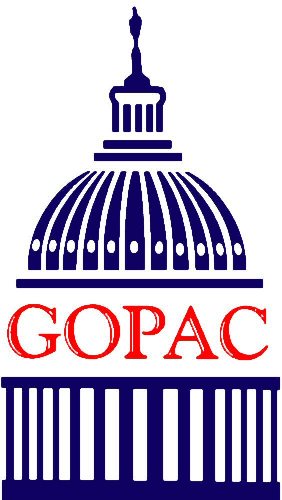

Recess Should Be Over
Monday August 7, 2006
Click here for an Easy Print Version
From Charleston, South Carolina
The Republican Governors' Association
US Ambassador to the United Nations, John Bolton, has his job as the result of a "recess appointment" made by President George W. Bush on August 1, 2005.
According to Article II, Section 2, Clause 3 of the US Constitution:
The President shall have Power to fill up all Vacancies that may happen during the Recess of the Senate, by granting Commissions which shall expire at the End of their next Session.
It is generally assumed that this clause was inserted during an era when the Senate had relatively brief periods of sitting, and fairly long recesses.
For instance, the 2nd United States Congress organized on March 4, 1791 (the date originally set by the Constitution) and didn't meet again until October 24 of that year. The 3rd Congress organized on March 4, 1793 and didn't meet again until December 2, 1793.
So, there was a perceived need for the Executive Branch to be able to operate with senior officers without having to wait six months for the Senate to get back to New York, Philadelphia or, starting in 1800, Washington.
According to the Congressional Research Service the expiration of a recess appointment at "the End of their next Session" generally refers to the Senate's adjournment sine die which will probably occur sometime around Thanksgiving in November.
That means, unless the Senate confirms him, Bolton's term will come to an end in about 90 days. It is possible for President Bush to give him another recess appointment, immediately after that, but under existing law Bolton wouldn't be able to be paid.
Democrats (and a couple of Republicans) opposed the nomination of Bolton last year because of his combative nature and his lack of fawning adoration for the UN as made clear when he more-or-less described it as a nest of dysfunctional, self-serving bureaucrats.
Over the past six years Hezbollah armed themselves with what are likely to be THOUSANDS of Katyusha rockets sent from Iran. The United Nations has had observers among Hezbollah for all of those six years.
Either the UN observers didn't see truckload after truckload of rockets being delivered through Syria or, they did see them and did nothing about it.
Either way you can come to only one conclusion: Bolton was right.
Honesty and diplomacy do not, apparently, go hand-in-hand in the minds of Senate Democrats.
Bolton is getting kudos from even THE FRENCH at his handling of the negotiations to get a resolution through the UN Security Council to halt the fighting in Israel and Lebanon, but as recently as July 27 during a Senate hearing on his nomination, Senator Joe Biden (D-Del) - who desperately wants to be taken seriously as a foreign policy expert, said:
"My concern is that at the moment of the greatest need for diplomacy in our recent history, we are not particularly effective at it."
Oops. Another Democratic Presidential hopeful, Sen. Chris Dodd (D-Conn), said that Bolton, "clearly has an aversion, in my view, to building consensus."
Obviously Dodd's view is clouded by his Oval Office Eyes.
Here's the crucial point about having someone like Bolton at the UN. The other representatives couldn't care less if Dodd or Biden or Hillary or anyone else in the United States Senate gets along with Bolton. What they want to know is:
Does the Representative from the United States to the United Nations have the confidence of, and does he speak for, the President of the United States?
This is true no matter whose Administration and no matter which political party.
In spite of the theory-du-jour among talking heads on the cable nets that the US, because of its unswerving support for Israel, is no longer able to broker a deal, Bolton has apparently done just that.
I would not be so foolish as to suggest the Senate return from its five-week vacation to Paris, Rome, Bali, Hawaii, and other world hot spots to deal with the Bolton nomination. But it should be the first and only thing on Majority Leader Bill Frist's agenda beginning moment they reconvene after Labor Day, and every moment thereafter - 24 hours a day, if necessary - until the vote is taken.
On the Secret Decoder Ring Page today: Links galore to everything from the Congressional Research Service's discussion of recess appointments, to a discussion of the kinds of rockets Iran has been supplying to Hezbollah. Also the links to the archives so you can help choose YOUR FAVORITE MULLINGS, a Mullfoto from London last month and a Catchy Caption of the Day.
--END --
Copyright © 2006 Richard A. Galen
Become a
Paid Mullings Subscriber!
(To join the FREE mailing list or to unsubscribe Click Here)

Current Issue |
Secret Decoder
Ring | Past
Issues | Email
Rich | Rich
Who?
Copyright �2006 Richard
A. Galen | Site design by Campaign
Solutions. |







 US & Int'l Papers
US & Int'l Papers